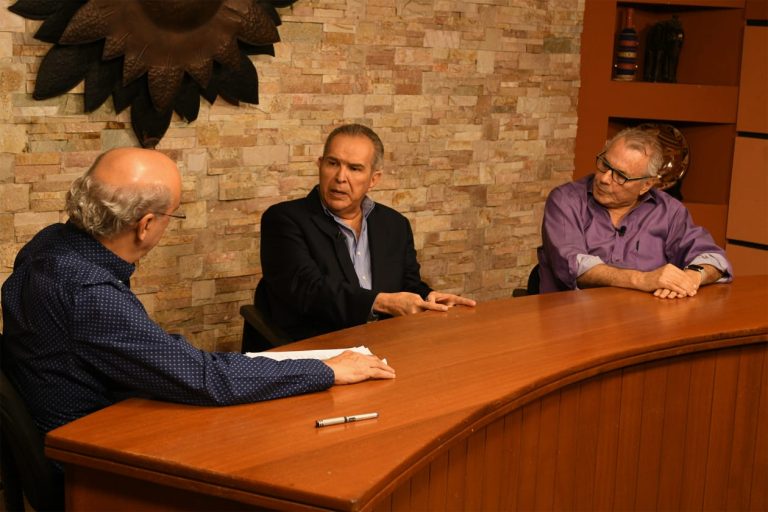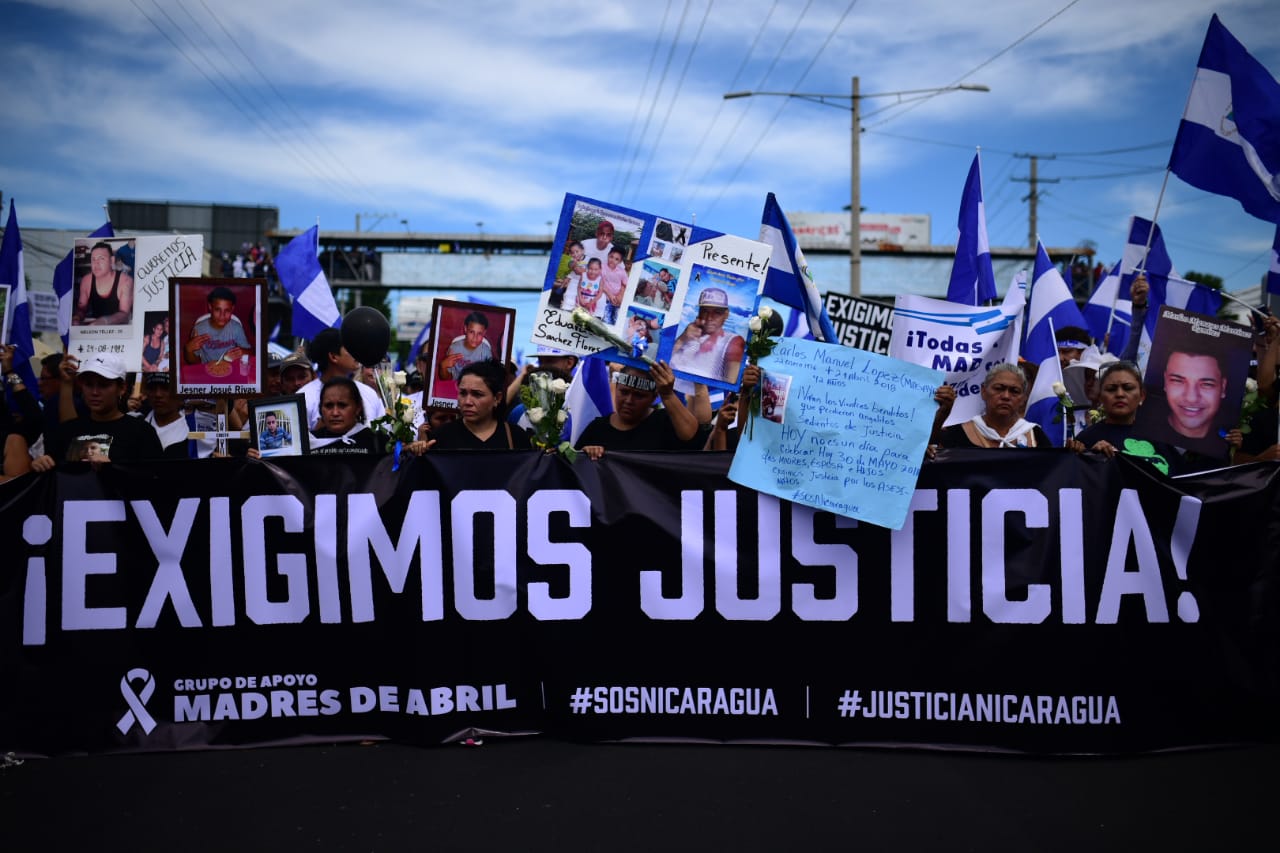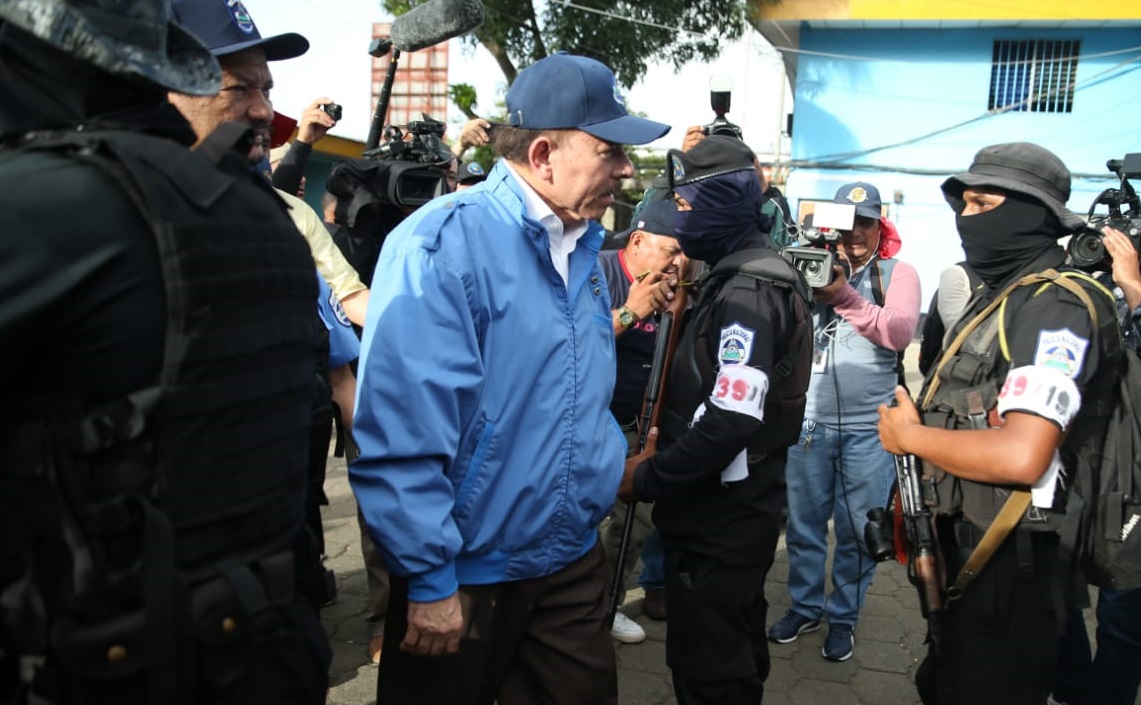26 de diciembre 2018

The Return of the Military

PUBLICIDAD 1M
PUBLICIDAD 4D
PUBLICIDAD 5D
Devastating report of the GIEI, which proves crimes against humanity, indicates that justice can no longer be found at the local level, warns expert.

The dictatorship of Daniel Ortega and Rosario Murillo was exposed at the international level by the report of the Interdisciplinary Group of Independent Experts (GIEI, in Spanish), which proves their crimes against humanity, committed between April 18th to May 30th, 2018, and they will have to face the consequences before international organizations, assured the former ambassadors Jose Luis Velasquez and Alejandro Bendana.
“The GIEI report passes to the Inter-American Commission of Human Rights (IACHR). What should proceed next is that the IACHR, as the oversight body of the human rights defense system throughout the continent, will present a claim against the Government of Nicaragua in the Inter-American Court of Human Rights, which is perfectly feasible,” explained Jose Luis Velasquez, political scientist and former ambassador of Nicaragua to the OAS.

Civic march demanding justice for Ortega’s massacre on May 30th, Nicaraguan Mothers’ Day. Photo: Carlos Herrera / Confidencial
Velasquez maintains that Nicaragua is heading to an outcome of the humanitarian crisis unleashed after the brutal official repression against the civic protests, now declared totally illegal by the regime, and adds that the economic situation will not hold for much longer, while the Government “is increasingly going to be more isolated.”
“After that denunciation, if a case is established at the IACHR, it will correspond to convoke a sessions session of the OAS Assembly of Foreign Affairs Ministers,” Velasquez explained, after recalling that this assembly “is the same that gave the coup de grace to Somoza,” demanding his immediate resignation.
However, the historian and former alternate ambassador at the UN, Alejandro Bendana, believes that he finds it “difficult to conceive that they summon (the assembly) when they do not have the votes ensured,” a minimum of 24, to be exact.
In his opinion, it remains to be seen if the offensive of the Trump Administration, with the signing of the Nica Act, has been extended to the diplomatic level to influence the opinion of those countries that still refrain from commenting or voting against the massacre and the Ortega repression in Nicaragua.
“If the (Assembly) is convoked, we must see if the text is of an extraordinary nature. That would mean that it is ready,” he analyzes. [Editor’s Note: it was announced today that the Permanent Council of the OAS will meet to discuss the situation in Nicaragua on Thursday, Dec. 27.]

President Ortega, with his wife, Vice President Rosario Murillo, during the inauguration of the Las Piedrecitas overpass, in Managua. Photo: EFE / Jorge Torres
Velasquez believes that “Ortega overestimated his capacity to handle the crisis, and at this point, with that (GIEI) report, we can see that the coup d’état narrative he was selling was reversed.
“It leaves him completely naked in front of the national community, which has seen it that way for a long time, and now (also) before the international community. Negotiations have never been in Ortega’s plan to prevail, which has brought him to this impasse from which it will be difficult to get out,” warns Velasquez.
The minimum of 24 votes in an extraordinary meeting of foreign ministers would allow the application of the Inter-American Democratic Charter to Nicaragua.
With the GIEI set to present their devastating report in Managua last Thursday, the reaction of the dictatorship was to expel the mission the day before, which is why it was presented the following day in Washington, D.C.

Daniel Ortega visits the police station in Masaya after operation clean up. Photo: Presidency / Confidencial
The former Nicaraguan ambassadors also warn that the other governments of the continent would have to question whether it is ethical to negotiate with a government that has committed crimes against humanity against the citizens of its nation.
According to Bendana, Ortega has demonstrated that “the only logic that he knows how to apply is that of repression, is to hide the truth, taking away our right to be heard by national and international human rights organizations and to be informed,” recalling the assault, military occupation and repression against independent media outlets.
“It is possible that things may get worse before they get better. This regime does not want to negotiate,” says Bendana, who hopes that this will be understood soon by some countries that still support or remain silent in the face of Ortega’s arbitrariness. The ex-diplomat believes that pressure is necessary in order to “effectively force a change whether Ortega wants it or not.”
“A peaceful solution has to be sought, but it can no longer be with the same parameters that places a juridical, political and moral equivalency that simply does not exist between the aggressor and the aggrieved, the victim and the perpetrator. This report puts the victims in a central role and tells them: “you have nowhere to appeal or to seek justice at the national level, you have to find it internationally,” Bendana pointed out.

Some graffiti against Daniel Ortega during a march in Managua. Carlos Herrera / Confidencial
Although Nicaragua is not a signatory of the Rome Protocol, which allows the jurisdiction of the International Criminal Court, the experts explained that the country is a signatory of the Convention on the Prevention and Punishment of the Crime of Genocide of the United Nations. Both agreed that the GIEI report “has an arsenal of important legal elements to illuminate this situation.”
“It establishes that you can no longer find justice at the national level and you have to resort to international justice,” says Velasquez.
Likewise, the former ambassador to the UN explains that Nicaragua is a signatory of the Committee Against Torture. Therefore, the Government is obliged not to torture prisoners. However, human rights organizations have denounced that more than 550 political prisoners of the dictatorship have suffered physical and psychological torture in the prisons. And many have been denied medical care.
Furthermore, both experts point out that, unlike Venezuela, Nicaragua does not have the means to subsist. “I believe that many are betting at the moment when the Sandinista Front is going to shake off that larva called ‘Orteguism’, and stop killing Sandino, if they want to continue as a political force in this country,” says Bendana.
PUBLICIDAD 3M
Confidencial es un diario digital nicaragüense, de formato multimedia, fundado por Carlos F. Chamorro en junio de 1996.
PUBLICIDAD 3D